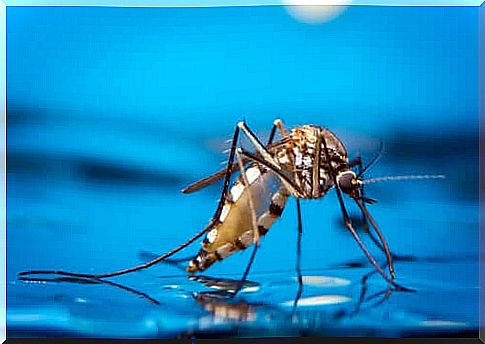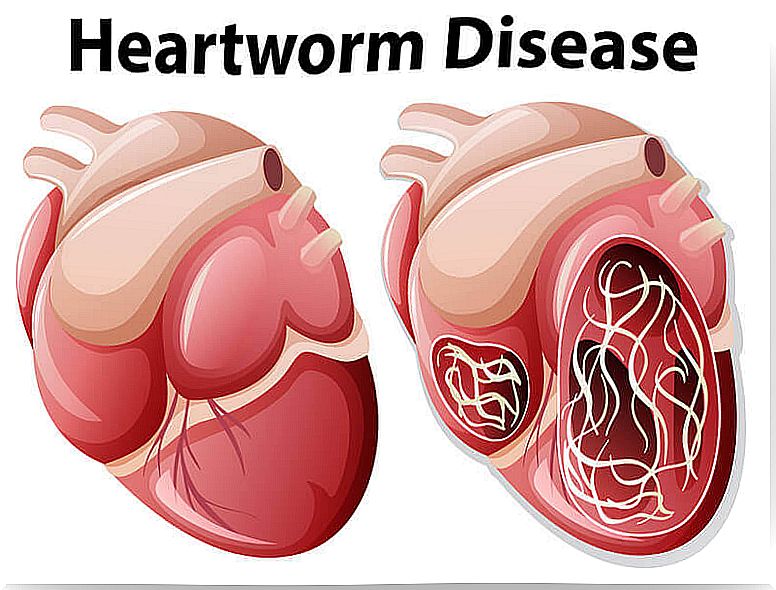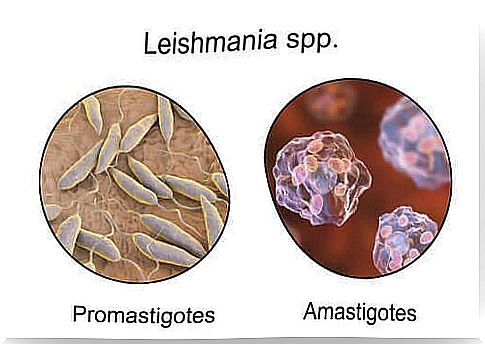The Dangers Of Insect Bites For Dogs

Insect bites that can pose a danger to dogs include mosquito, flea, bedbug, tick, bee, hornet and wasp bites. When an insect bites, it inoculates its own saliva into the victim, along with specific components that aid in its nutrition.
Saliva contains a cocktail of substances, very purified from the evolutionary point of view, which mainly includes anticoagulant and vasodilator active ingredients, but also anesthetic substances. In addition to producing allergic reactions, insect bites are able to inoculate the agents responsible for the transmission of numerous diseases.
Insect bites dangerous for dogs
Some pets are particularly sensitive to certain insect bites and can have disproportionate reactions. In severe cases, they may suffer from anaphylaxis, also known as anaphylactic shock. This phenomenon occurs when the immune system exhibits an inordinate reaction to an insect bite.
Although anaphylaxis following an insect bite is a rare phenomenon, we must be alert for any changes in behavior, breathing difficulties or skin swelling. In the presence of these symptoms it is necessary to contact the veterinarian without hesitation.
Worm Disease of the Heart
Heart parasite disease is a severe parasitic disease caused by a worm, Dirofilaria inmitis , which lives in the blood vessels and hearts of infected pets. Unfortunately, there are no laboratory tests that can diagnose the presence of heartworm disease.

The disease is transmitted through mosquito bites. When a mosquito bites an infected dog, the blood that is extracted contains the parasite in its prelarval stage. Inside the mosquito, the parasite develops until it reaches its larval stage.
When the mosquito bites a second dog, it transmits the parasite. Penetrated inside the animal’s organism, each heart worm can become a parasite up to 30 centimeters long.
This parasite can cause injury to the lungs, arteries and heart. Treatment is available for this disease, but mosquito prevention and control are the most important measures to take.
Dangers of insect bites in dogs: Lyme disease
If your dog has been bitten by a tick, move it away immediately to reduce the risk of getting a tick-borne infection – Lyme disease. This pathology is caused by a bacterium, Borrelia burdogferi .
It is necessary to prevent the onset of the disease through tick control. In the event of an infestation, the dog must be treated as quickly as possible, because the possibility of contagion increases from the first 48 hours of interaction between the tick and the dog.
Ticks and babesiosis in dogs
Babesiosis is another disease caused by protozoan (single-celled) parasites of the genus Babesia . In a dog, the infection can arise by transmission through a tick bite.
There is also direct transmission through the transfer of blood by dog bite, blood transfusion or transplacental transmission. The average incubation period is about two weeks, but symptoms can remain mild and, in some cases, go undiagnosed for months or years.

Flies cause myiasis in dogs
Flies are an insect that can strike your dog, depositing their eggs under your pet’s skin, especially through open wounds. Over a few days, the eggs hatch into larvae that travel along the surface or enter deeper layers of the skin, causing swelling and secondary infections, such as bacteria.
Depending on the area of the body affected, myiasis can be classified as cutaneous, ophthalmic, auricular and urogenital. It can affect any vertebrate animal, including humans, and is widespread all over the world, although it is predominant especially in the wettest months.
Sand flies transmit leishmaniasis
This disease is caused by a protozoan parasite that infects dogs and some rodents in many areas of the world, most commonly in rural areas. The parasite is transmitted by the bite of a small sand fly.
Humans can also contract leishmaniasis. However, it is important to keep in mind that people cannot get infected directly from their dog. Leishmaniasis is widespread in the Mediterranean and South America.









